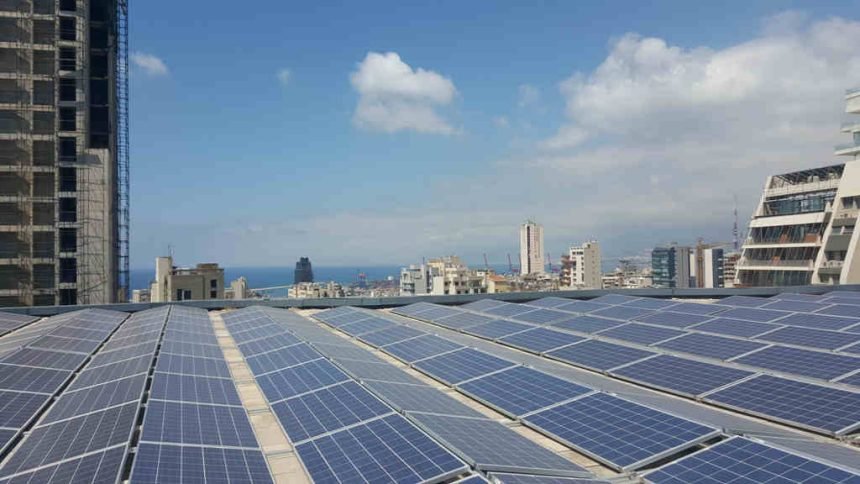The Minister of Economy and Trade highlighted a Qatari proposal to build solar energy farms, boasting a capacity of 450 megawatts. This proposal, made last December, has not yet been presented to the cabinet. The Minister of Energy and Water replied that the Qatari offer requires legislation, as 11 companies hold exclusive renewable energy licenses in Lebanon, preventing new entrants. These 11 licensed companies have refrained from energy production after the Ministry of Energy and Water set kilowatt-hour prices at 3 to 7 cents.
LIMS weighed on the legal framework contending that if the Qatari offer is a donation, it should not necessitate a legislation. LIMS added that the proposal is not serious, but rather a reminder of Qatar’s previous interest in renewable energy in general. Solving Lebanon’s electricity crisis requires cooperation between the private sector and municipalities. The strategy centers on attracting private investments in renewable energy and waste management sectors, traditionally dominated by state-owned entities.
Under this model, municipalities would authorize private enterprises to handle electricity production and distribution, as well as waste management services. This move could break the long-standing monopoly of Électricité du Liban, reducing electricity costs significantly. Renewable energy at the municipal level could provide power at 9 cents per kilowatt-hour, based on the Toula pilot project, compared to 44 cents from private generators and 27 cents from the state utility.
This proposal aims to create a win-win scenario: providing essential services more efficiently while generating new revenue streams for cash-strapped municipalities. This could enable local governments to fund their operations and pay employee salaries without relying on the depleted state coffers or resorting to additional taxation. In fact, the 2002 law facilitated this transition when it broke the electricity monopoly, but it has yet to be fully enacted due to the absence of a regulatory body.
- Municipalities: Ideas From Outside “The Box” To Revitalize Them And Increase Their Services, May 7, 2024: Al Jadeed, Video Interview AR
- The Role Of Municipalities And Civil Society In Achieving Development, May 10, 2024: Al Joumhouria, Article AR
- Water Crisis… Between Auxiliary Networks And The Law, Our Water Resources Are Not In Safe Hands, May 10, 2024: Nidaa Al Watan, Article AR
- One Billion Euros… A Sum Europe Might Grant Lebanon And Keep In Its Pocket Simultaneously…, May 16, 2024: Akhbaralyawm, Article AR
- Is There a Role for Municipalities in Meeting Citizens’ Need for Clean Electricity? May 20, 2024: Al Hiwar News, Article AR
- For The Continuity Of Municipal Work In Lebanon, May 20, 2024: Addiyar, Article AR
- Electricity Plants Are Dilapidated And No Sufficient Collection Of Bills, Will We Enter Into Total Darkness? May 25, 2024: This Is Lebanon, Video Interview AR
- “Solar Farms” at the Municipal Level..The Best Solution to the Electricity Crisis? May 27, 2024: Al Markazia, Article AR
- The Bitter Truth: 24/24 Electricity Does Not Serve the Interests of the Lebanese, May 30, 2024: Al Safa News, Article AR
- The Qatari Offer To Build Energy Plants Needs A Long Legal Path: Offers For A Crisis With Many Deadlines And Solutions Will Not Be Known, May 31, 2024: Annahar, Article AR

